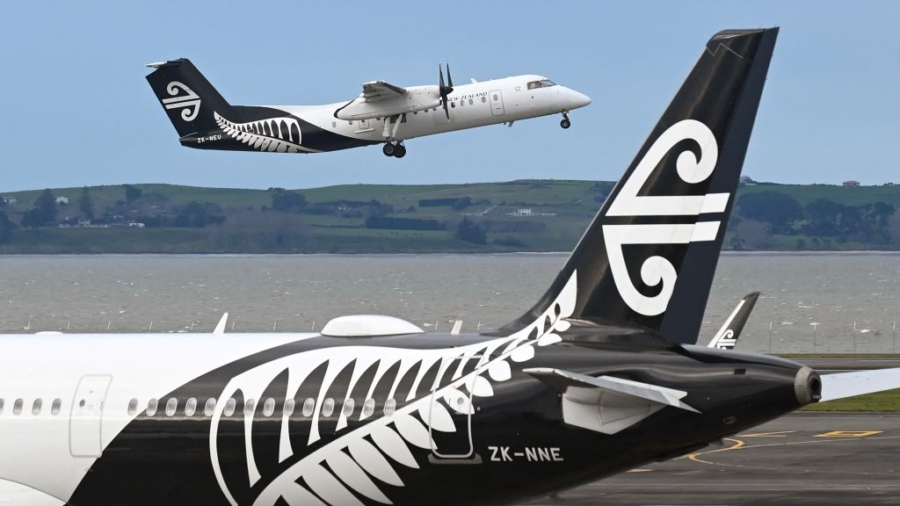New Zealand will reopen its borders to international travelers vaccinated against the CCP virus in the opening months of 2022, the government announced on Wednesday.
Under the new plan, the border will open in three phases, Chris Hipkins, the country’s COVID-19 response minister, said during a press briefing on Wednesday.
First, only vaccinated New Zealanders and residence visa holders in neighboring Australia will be able to return to the South Pacific island nation from Jan. 16. About one month later, starting at midnight Feb. 13, New Zealanders and other eligible travelers can return to the country from all other destinations.
From April 30 onwards, the borders will reopen to allow vaccinated international travelers to enter the country, Hipkins said, noting that those tourists will be asked to self-isolate for one week.
“Today, I am confirming that fully vaccinated New Zealanders will find it easier to come home from January, and foreign nationals follow from April onwards, as we remove the requirement for Managed Isolation and Quarantine (MIQ) for most travelers arriving into New Zealand,” the minister said.
“There still will be carefully managed processes for recent arrivals, including a mandatory seven-day self-isolation period for people who are not required to enter MIQ,” he added.

New Zealand has among the lowest CCP (Chinese Communist Party) virus cases in the world with under 10,000 cases reported so far and 40 deaths. It reported 205 new cases on Nov. 22 and its total double-dose vaccination rate had reached 83 percent of its eligible population.
The country has one of the highest vaccination benchmarks in the world, 90 percent, before officials will start to fully reopen the country.
Pressure has been mounting on Prime Minister Jacinda Ardern to reopen international borders ahead of the Christmas holidays so that expatriate New Zealanders could return home. Many industries have also campaigned to reopen borders more quickly as they struggle to fill job vacancies.
Earlier this week, Ardern announced a new CCP virus traffic light system that will subject the unvaccinated to more restrictions, and at the same time lift tough lockdown rules for the vaccinated, effective from Dec. 3.
The new rules will ease lockdown restrictions for Auckland, the most populated city in New Zealand, which has undergone tough lockdown measures for more than three months.

Under the new rules, a vaccinated person will still be required to wear masks on flights and in public transport, taxis, retail, and public venues under the orange level. However, unvaccinated individuals will be denied entry into events, restaurants, hairdressers, and cafes that use vaccine certificates.
Under orange or red level COVID-19 settings in the country, hairdressers, events, gyms, and close-contact businesses that do not use vaccine passports will not be allowed to open at all; restaurants and cafes that do not use vaccine certificates will only be able to offer takeaway food; and gatherings and funerals will face lower caps on numbers.
Individuals granted a medical exemption from getting the vaccine will be able to enter venues without disclosing their vaccination status, however, they will be required to apply for a temporary medical exemption through a health provider every six months.
Tammy Hung and Reuters contributed to this report.

